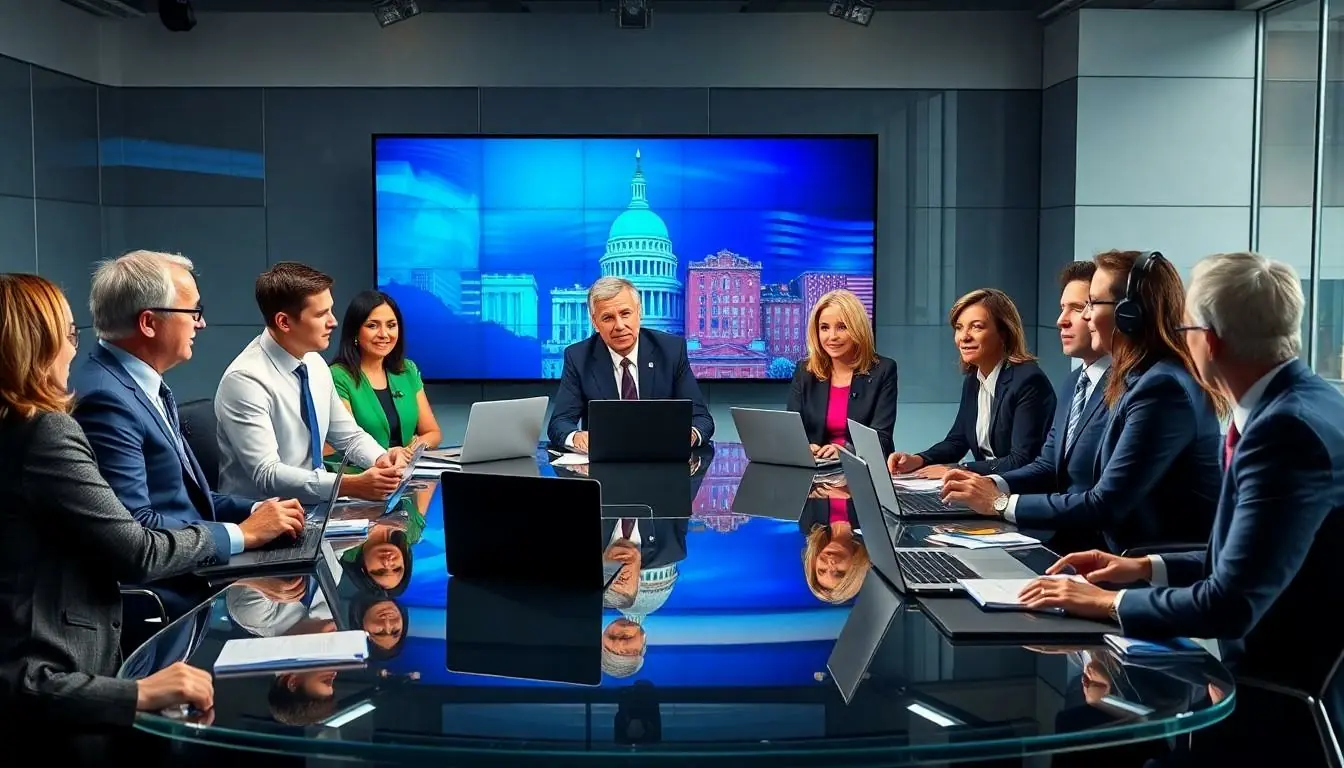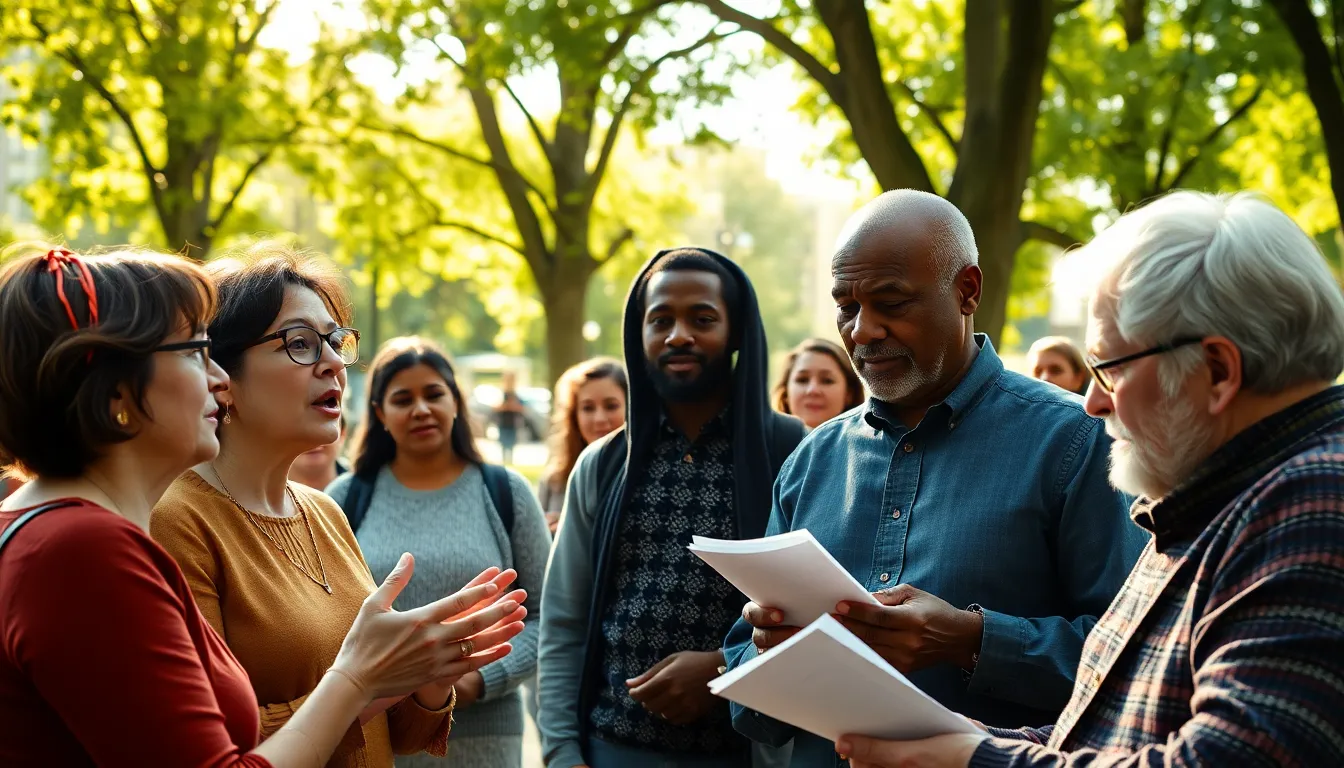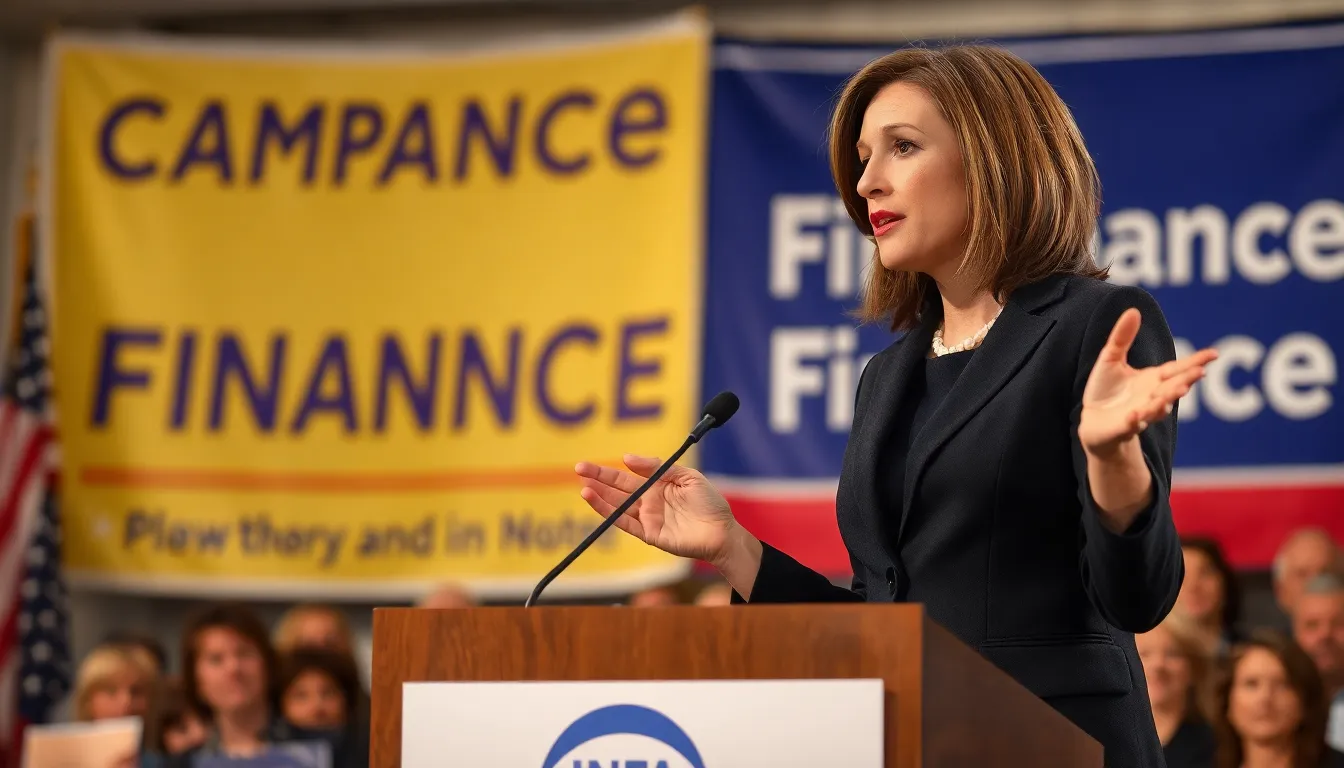In a world overflowing with opinions, journalist political commentators stand out like a flamingo at a penguin convention. They’re the sharp-eyed hawks soaring above the political landscape, dissecting every twist and turn with wit and insight. Whether it’s a presidential debate or a local election, these commentators have a knack for turning the complex into the comprehensible, all while keeping audiences on the edge of their seats.
With an arsenal of facts, a sprinkle of humor, and an uncanny ability to predict the unpredictable, they’ve become the go-to source for anyone wanting to make sense of the chaos. So, what makes these commentators tick? And how do they manage to keep their sanity while navigating the wild world of politics? Dive in to explore the fascinating realm of journalist political commentators and discover why they’re the unsung heroes of modern media.
Table of Contents
ToggleOverview Of Journalist Political Commentators
Journalist political commentators serve a vital role in the media landscape by providing analysis on political events and issues. Through their reporting, they clarify complex topics, such as legislation and electoral processes, making them accessible to the public. These commentators often appear on various platforms, including television, radio, and online forums, bringing diverse perspectives to their audiences.
Many political commentators combine expertise in journalism with a deep understanding of political theory. They often draw on their backgrounds in political science, law, or international relations to enhance their commentary. Engaging storytelling and humor often characterize their delivery, helping to captivate viewers and readers alike.
Commentators act as intermediaries between policymakers and the general public. They dissect the implications of political decisions, making information relevant to everyday lives. Through interviews, panel discussions, and social media engagement, these journalists foster dialogue around pressing political issues.
Contextualizing events within historical frameworks also defines their work. By referencing past events and trends, they clarify current political landscapes. This approach aids audiences in understanding the ongoing changes in politics and public policy.
Credibility and reliability serve as cornerstones of effective commentary. Many commentators establish their authority through rigorous fact-checking and transparent sourcing. Trust builds over time when audiences recognize and appreciate their consistent insights.
Journalist political commentators play an essential role in shaping public discourse around politics. They navigate the complexities of governance, making critical conversations accessible and engaging. Ultimately, their contributions enrich the media’s role in democracy, providing vital context to the political narratives of today.
Role And Impact Of Journalist Political Commentators

Journalist political commentators play a critical role in shaping the political landscape. Their analysis can significantly influence how audiences perceive political events and issues.
Influence On Public Opinion
Influencing public opinion is a primary function of journalist political commentators. They simplify complex issues, making them accessible to a wider audience. These commentators often provide context, connecting current events to historical trends, which enhances understanding. Discussions during televised debates or on social media platforms highlight their impact. By presenting diverse viewpoints, they encourage critical thinking among viewers. For instance, a political debate broadcast may expose audiences to varying interpretations of policy proposals, shaping perceptions of candidates and their platforms. Additionally, consistent and clear messaging can solidify particular narratives in public discourse.
Contribution To Political Discourse
Contributions to political discourse come from journalist political commentators through their active engagement in discussions. They foster dialogue by bringing attention to underreported topics and spotlighting diverse perspectives. Engaging in debates or interviews, these commentators challenge conventional wisdom and stimulate new conversations. Their ability to raise questions and present facts promotes informed debate. Coverage of local elections and policy changes often sees increased interest and participation due to their insights. Furthermore, by dissecting legislation and electoral processes, they educate the populace about the implications of political actions. Ultimately, they strengthen democratic engagement through thoughtful commentary and analysis.
Types Of Journalist Political Commentators
Journalist political commentators fall into various categories based on their platforms and styles of engagement.
Traditional Media Commentators
Traditional media commentators primarily operate through established platforms like television and radio. These professionals often anchor news programs or contribute regularly to political shows. They focus on delivering news analysis during key events, such as elections and debates. Their credibility hinges on years of experience in journalism and political reporting. Anchors engage audiences through live discussions, interviews, and expert panels. They work to clarify complex topics using concise language, which makes information easily digestible. Viewers rely on these commentators for in-depth analysis and insights that frame public understanding of political events.
Online And Social Media Commentators
Online and social media commentators leverage digital platforms to connect with audiences. These commentators often utilize blogs, podcasts, or social media channels to share their opinions. They post real-time updates, making information accessible and interactive. Engaging with followers enables them to foster discussions around current events. Some focus on niche issues, while others provide broad commentary on national or global politics. Their reach often exceeds traditional commentators, drawing diverse audiences. Audience engagement helps shape the conversation, allowing these commentators to respond to trends quickly.
Challenges Faced By Journalist Political Commentators
Journalist political commentators face various challenges that impact their effectiveness and credibility. These hurdles arise from rapidly changing media landscapes and evolving audience expectations.
Media Bias And Credibility Issues
Media bias presents a significant challenge for journalist political commentators. This bias can originate from personal viewpoints or organizational affiliations. Such biases often lead to skepticism among audiences. Credibility issues may arise during the presentation of facts, especially in emotionally charged political climates. Fact-checking and transparent sourcing become essential tools for maintaining trust. Commentators rely on data and reputable sources to establish authority. Addressing bias openly often helps mitigate perceptions of unfairness. Audiences value balanced commentary that acknowledges multiple perspectives. A rigid adherence to factual information enhances the overall credibility of their narratives.
Navigating Polarization And Partisanship
Navigating polarization poses a considerable challenge for journalist political commentators. High levels of partisanship create environments where objective analysis often gets overshadowed by partisan narratives. Commentators must remain neutral while providing insightful commentary. Engaging in respectful dialogue can foster understanding among diverse viewpoints. Clever insights can invite critical thinking, even in heated discussions. Bridging divides requires careful language to avoid alienating segments of the audience. Regularly contextualizing current events helps audiences relate to differing opinions. Monitoring audience reactions also informs commentators about prevailing sentiments. By embracing the complexity of political issues, commentators enhance the quality of public discourse.
Journalist political commentators play a pivotal role in today’s media environment. Their ability to distill complex political issues into relatable insights fosters a deeper understanding among audiences. By bridging the gap between policymakers and the public, they enhance democratic engagement and promote informed discourse.
As they navigate challenges like media bias and polarization, their commitment to credibility remains paramount. The diverse perspectives offered by both traditional and online commentators enrich public dialogue, encouraging critical thinking and active participation in political discussions. Ultimately, these commentators not only inform but also inspire citizens to engage with the political landscape in meaningful ways.



